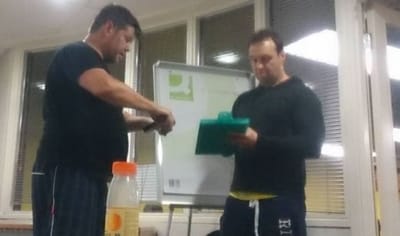How patients/clients are helped?

From these blood results a bespoke treatment plan will be prepared for you. Fortunately, there is a great deal of progress being made in respect to not having to be having to rely on medications and help you reduce your weight organically, and in much ‘healthier’ way.
Most patients realize the enormity of their task ahead but tend to keep that awareness to themselves. However, most of the patients I have encountered in my many years of practice, when given the opportunity, do complain and talk about their struggles and what seems an exhausting, especially the never-ending process diabetes self-care is.
The relief is about not having to live up to some artificially established benchmark for where they should be emotionally (e.g., happy, coping well, grateful, balanced) based on naive illusions and unrealistic expectations. Such expectations may be convenient to hold on to as ideals but are difficult for patients and providers alike to live up to.
Most people with diabetes experience a feeling of powerlessness. This is not to say they feel that they cannot affect their lives or the lives of those around them. Rather, it refers to their sense of being unable to prevent the onset of diabetes or, once diagnosed, to make it go away. On both an intellectual and spiritual level, many patients struggle with these feelings of powerlessness, saying, “If I'm so smart, I should be able to think my way out of this,” or, when dealing with numbers that do not correlate to behaviors, “I should be able to do better than this.” Parents trying to come to terms with the diagnosis of diabetes in their child usually experience a profound sense of powerlessness when they realize that there was nothing they could have done to protect their child from harm (developing diabetes) and cannot now make the “hurt” (diagnosed diabetes) go away.
The more clinicians/Health Care Providers come to understand that having these feelings is a part of any effective coping process, the more relieved patients will become and the less frustrated both groups will feel. The relief for patients usually comes when they perceive their health care providers as being attuned to the realities of living and coping with diabetes.
I believe that powerlessness is the feeling that most accurately describes the core diabetes experience for patients and their families and loved ones. The experience has a different impact for people with diabetes than for those living with a relative or loved one with diabetes. We all have our own ways and styles of coping with this powerlessness as we perceive it. But almost everyone comes face to face with it on the journey of living with diabetes. Trying to come to terms with the daily struggle of chronic illness is both frustrating and exhausting.
There are many understandable fears related to having diabetes. For patients, these include fear of hypoglycemia, of injections, of incorrect dosing, of not waking up. There is also fear of intimacy, fear regarding sexual performance, fear of dependency on others, fear of being judged, and, for families, fear of not being supportive enough or not doing the right thing. In the longer term, there is fear of complications, fear of living in infirmity, and fear of not being able to live out one's dreams for retirement.
As clinicians working with people with diabetes, we need to feel comfortable talking about such fears. We need to achieve a delicate balance in which we neither indulge them too much nor completely disregard them. A frank discussion, starting with the simple question, “What things are you afraid of regarding your diabetes?” is a good place to start.